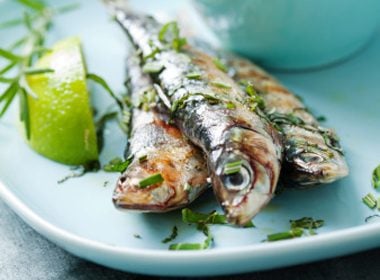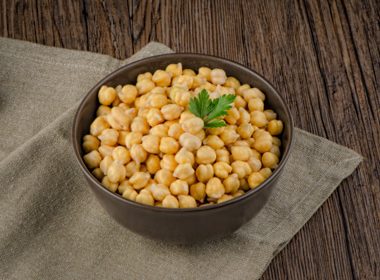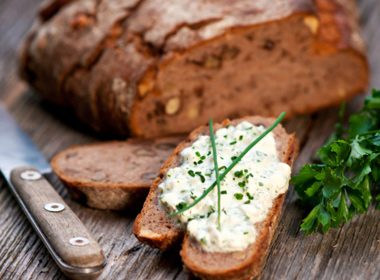
Foods Rich in Omega-3s: The Best Natural Antidepressants
In countries where fish consumption is high, such as Japan, Taiwan, and Finland, rates of depression tend to be low. Conversely, in areas where fish consumption is low, like North America and Europe, depression rates are much higher – as much as 10 times higher. Women who rarely eat fish have more than twice the risk of developing depression compared to those who dine on “fin food” often. Recent studies suggest foods rich in omega-3 are considered one of the best natural antidepressants.
Aim for: Although it’s nearly impossible to consume enough omega-3s to treat depression through food alone (you’ll need between 1 and 3 grams of omega-3s a day to lift your mood), eating more fish, such as sardines, may help prevent depression in the first place. Start by eating at least two fish meals a week. If you don’t like fish, add a teaspoon (5 millilitres) of ground flaxseed, another good source of omega-3s, to cereal, yogurt, or salads every day.

The Best Natural Antidepressants: Foods High in B Vitamins
Most research has focused on folate (or folic acid), B6, and B12 because these vitamins are often in short supply among people with depression. Foods high in B vitamins could be one of the best natural antidepressants.
Harvard researchers found that between 15 and 38 percent of people with depression are folate-deficient. While it’s uncertain whether this causes depression, we do know that lack of folate can delay symptom relief from antidepressants.
Women who take birth control pills or hormone replacement drugs can also be low in B6 (possibly why women’s depression rates are twice than those of men). Also, B12-deficiencies are common among vegans who don’t eat animal proteins. Studies have yet to prove whether B vitamins can prevent or treat depression, though it’s believed that it generally benefits brain health.
Aim for: Vitamin B6: 1.3 to 1.5 mg daily. A serving (100 gr/3.5 oz) of tuna or a cup of chickpeas will mostly do the trick. Buckwheat flour is another good source. Vitamin B12: 2.4 mcg daily. You can easily get from a serving of beef or eggs. Folate: 400 mcg daily. A cup of cooked lentils is almost enough, as is a cup of cooked spinach with a glass of orange juice. Asparagus and avocado are also good sources.

Amino Acids To Fight Depression?
Tryptophan is critical to production of the neurotransmitter serotonin, which regulates mood. British researchers found that taking 1,000 mg of tryptophan three times a day helped improve mood. This could make amino-acids one of the best natural antidepressants one can find in foods.
Aim for: It’s not possible to get as much tryptophan as the British researchers used in their study from food alone, so simply aim to include more tryptophan-rich foods (like peanuts, fish, milk, dates, and even chocolate) in your diet. You can also help your body make its own tryptophan by eating more meats and soy protein (a good source of the amino acid).
Helpful hint: Gobble up some turkey. Not only is it a good source of tryptophan, but it also contains those brain-critical B vitamins along with good amounts of iron, selenium, and zinc, other nutrients being studied for their connection to alleviating depression.

Natural Antidepressants found in Foods: Complex Carbohydrates
Carbohydrates indirectly help make serotonin. Simple carbohydrates like sugary and starchy foods and those made with white flour boost serotonin levels, too, which is why we instinctively reach for them when we’re feeling blue. But these foods cause blood sugar to rise quickly and then fall quickly. When blood sugar levels fall, so do our moods. Wild swings in blood sugar that come from eating too many of these foods stress the adrenal glands, which in turn leads to fatigue and depression.
By contrast, complex carbs, like those found in whole-grain products (breads, rice, and pasta), fruits, vegetables, and legumes, boost and sustain serotonin without spiking blood sugar.
Aim for: 7 to 10 servings of fruits and vegetables a day. In addition, make at least three of your grain servings whole grains. Eating a bowl of high-fibre cereal in the morning and making your sandwich for lunch with two slices of whole-grain bread will get you there.